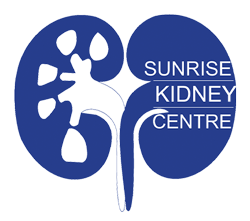Fever With Multiorgan Failure Treatment in Vijayawada
Organ failure symptoms vary depending on the affected system but often include severe fatigue, swelling, and shortness of breath. Patients may experience confusion or altered mental states when brain function is compromised, or jaundice and abdominal pain with liver failure. Kidney failure can cause decreased urine output and fluid retention, leading to swelling in limbs and lungs. Respiratory failure manifests as difficulty breathing and persistent cough, while heart failure presents with swelling, fatigue, and irregular heartbeat. Recognizing these symptoms early is crucial for prompt intervention, as organ failure can rapidly become life-threatening, requiring intensive medical management to prevent irreversible damage and improve survival chances.
Multiple organ failure (MOF) involves the progressive dysfunction of two or more organ systems, often resulting from a systemic response to severe illness or injury. Commonly affected organs include:
Lungs (leading to acute respiratory distress syndrome)

Acute respiratory distress syndrome (ARDS) is a severe lung condition characterized by rapid inflammation, fluid buildup, and impaired oxygen exchange, often caused by trauma or infection.
Kidneys (causing acute kidney injury)
Acute kidney injury (AKI) is a rapid decline in renal function, causing fluid imbalance, toxin buildup, and potentially reversible damage.
Liver (hepatic failure)
Hepatic failure is a severe condition characterized by rapid loss of liver function, leading to coagulopathy, jaundice, encephalopathy, and multi-organ dysfunction.
Heart (cardiovascular collapse)
Cardiovascular collapse is a rapid decline in heart function and blood circulation, leading to shock, organ failure, and potential death if untreated.
Hematologic System (coagulopathy)
The hematologic system comprises blood, bone marrow, and lymphatic vessels, essential for oxygen transport, immune defense, and waste removal.
Clinical multiple organ failure (MOF)
Clinical multiple organ failure (MOF) is a severe, life-threatening condition characterized by the progressive dysfunction of two or more organ systems, often resulting from systemic inflammatory responses such as sepsis, trauma, or major surgery. It demands prompt, multidisciplinary intervention to stabilize vital functions and prevent mortality, highlighting the importance of early recognition and supportive care. Multiple organ failure (MOF) results from a complex interplay of systemic inflammation, ischemia, and cellular dysfunction, often triggered by severe infections, trauma, or shock. Cytokine storms induce widespread endothelial damage, increasing permeability and leading to hypoperfusion, hypoxia, and metabolic derangements, ultimately causing progressive failure of multiple organ systems. Early recognition and management of underlying causes, along with organ support therapies like ventilators, dialysis, and vasopressors, are critical for kidney organ failure treatment in Vijayawada.
Treatment
Management of multiple organ failure (MOF) requires a comprehensive, multidisciplinary approach focusing on early detection, stabilization, and support of affected organs. Critical interventions include aggressive hemodynamic stabilization with fluids and vasopressors, mechanical ventilation for respiratory failure, renal replacement therapy for kidney impairment, and nutritional support to optimize recovery. Identifying and treating underlying causes such as sepsis or trauma is essential. Continuous monitoring in intensive care units allows timely adjustments. Emerging therapies like immunomodulators and targeted cytokine treatments show promise but require further research. Overall, individualized treatment protocols and vigilant supportive care are crucial to improving survival and reducing long-term complications in MOF patients.
Early intervention is crucial in managing kidney disease and can significantly improve health outcomes. For expert care, schedule a consultation with Dr. M. V. Sai Krishna, a leading nephrologist at Sunrise Kidney Centre in Vijayawada, who specializes in personalized treatment plans and advanced therapies like plasma pheresis treatment in Vijayawada to effectively support your kidney health and overall well-being.

